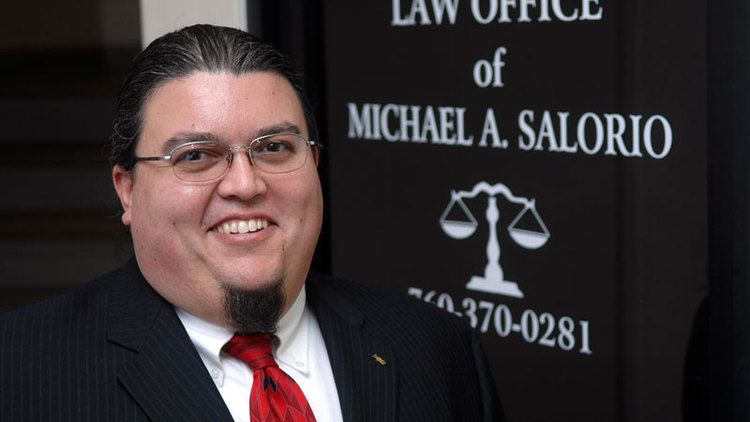When 2011 Bowen graduate Michael Anthony Salorio went home to the southern California desert to practice law, he knew he wanted to open his own practice.
He began practicing in areas – like bankruptcy and immigration – where he felt comfortable because of prior experience and course work at Bowen. But there were elements about opening a law firm that were still foreign to the former newspaper reporter and paralegal.
 That’s where Salorio’s scholarship to the Solo Practice University (SPU) came in handy.
That’s where Salorio’s scholarship to the Solo Practice University (SPU) came in handy.
The online resource center for solo practitioners provides video lectures, classes, questionnaires, intake forms, as well as discounts on goods and services that smaller firms need everyday.
“I had a plan before I ever went to law school,” he said. “I wanted to establish a practice out here and exploit the professional networks that I built up during my reporting days. My goal was to be a successful small-town practitioner in a small rural county.”
However, being on his own has forced Salorio not only to use his own networks in southern California, but he also has to be inventive on how he manages his time in the practice. He is a sole proprietor, which means that he must answer every phone call, and handle marketing and advertising for the firm, and all other business that an office manager would take care of in a bigger firm.
“I have to do everything for myself,” he said. “It feels great to be my own boss because no one but myself tells me what to do. But with that privilege comes a lot of responsibility. It’s totally different from when I was a reporter or paralegal because I’m the attorney of record—the buck stops with me.”
Salorio is also using more than his networking skills to promote his business. Out of 10 clients, nine are Hispanic. He counts his Spanish fluency and willingness to work with Spanish-language media as an advantage. His familiarity with technology is serving to be a competitive advantage as well.
“I integrate technology as much as possible, but I don’t buy something for just the bells and whistles, or because it’s new,” Salorio said. “My office computer network is totally wireless, and I use a Square reader with an iPod to accept credit card payments. I print my own postage, which saves me trips to the post office, and I run as much of a paperless office as I can, and I conduct almost all of my legal research online. ”
Salorio knows it will take several years to be able to make a good living from his firm. He feels the sacrifices are worth it – just like his hard work when he was a student at Bowen.
“You can afford to specialize in bigger cities, but in a rural county you have to handle many different types of cases to stay in business,” Salorio said. “Bowen prepared me well. I took every bar course offered except conflicts because it wasn’t tested on the California Bar Exam. It wasn’t easy for me to take all but one of the bar courses offered at Bowen – I had to take six finals one semester as a result – but it all paid off.
“Only 55 percent of California bar takers passed the July 2011 examination. If I hadn’t passed on that first try, then I couldn’t have hanged a shingle this past December. I had to pass on my first try, or I couldn’t have opened my first practice because the money that I used to open it would’ve instead gone toward taking the bar exam a second time. Failure was definitely not an option for me.”